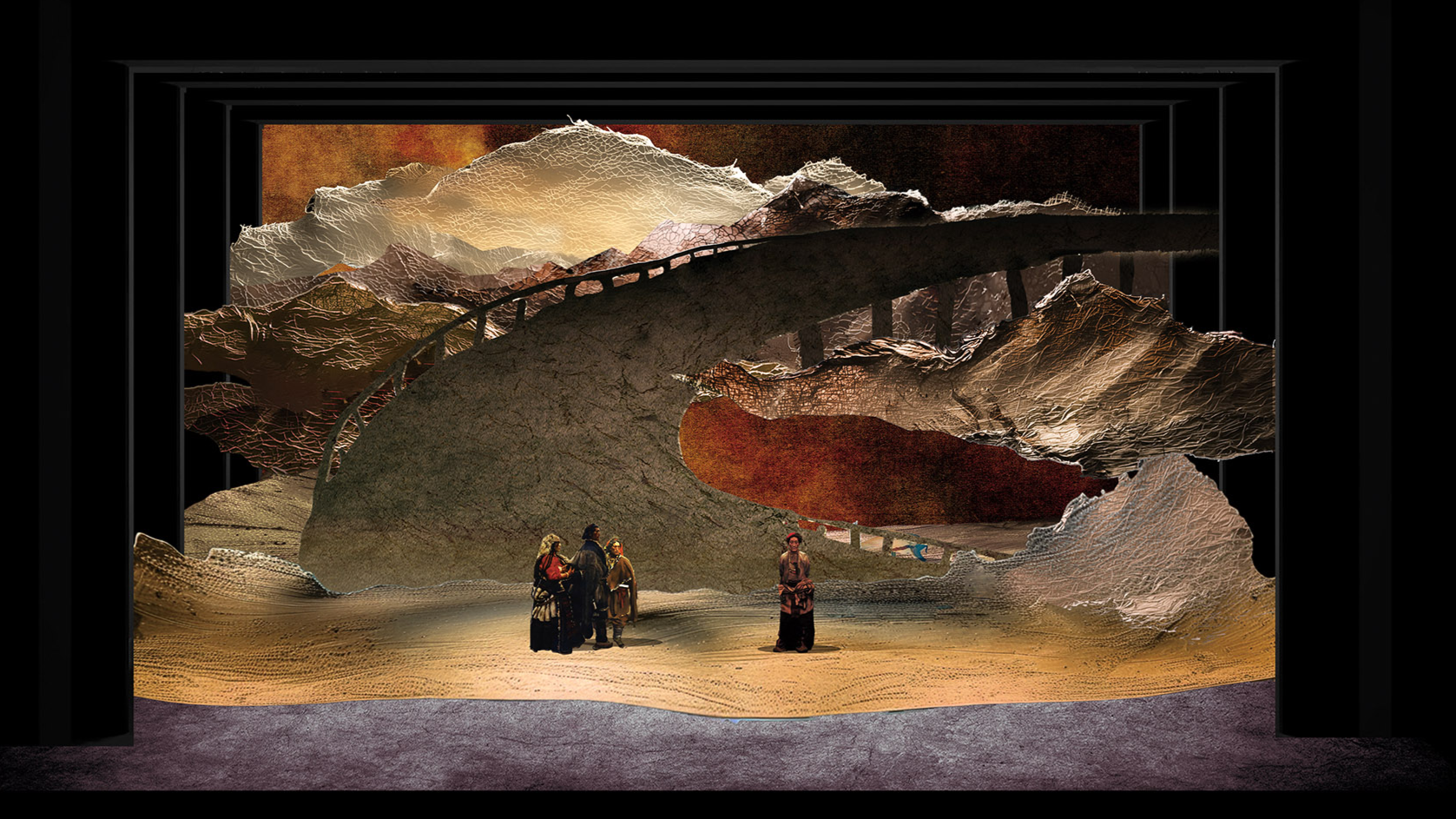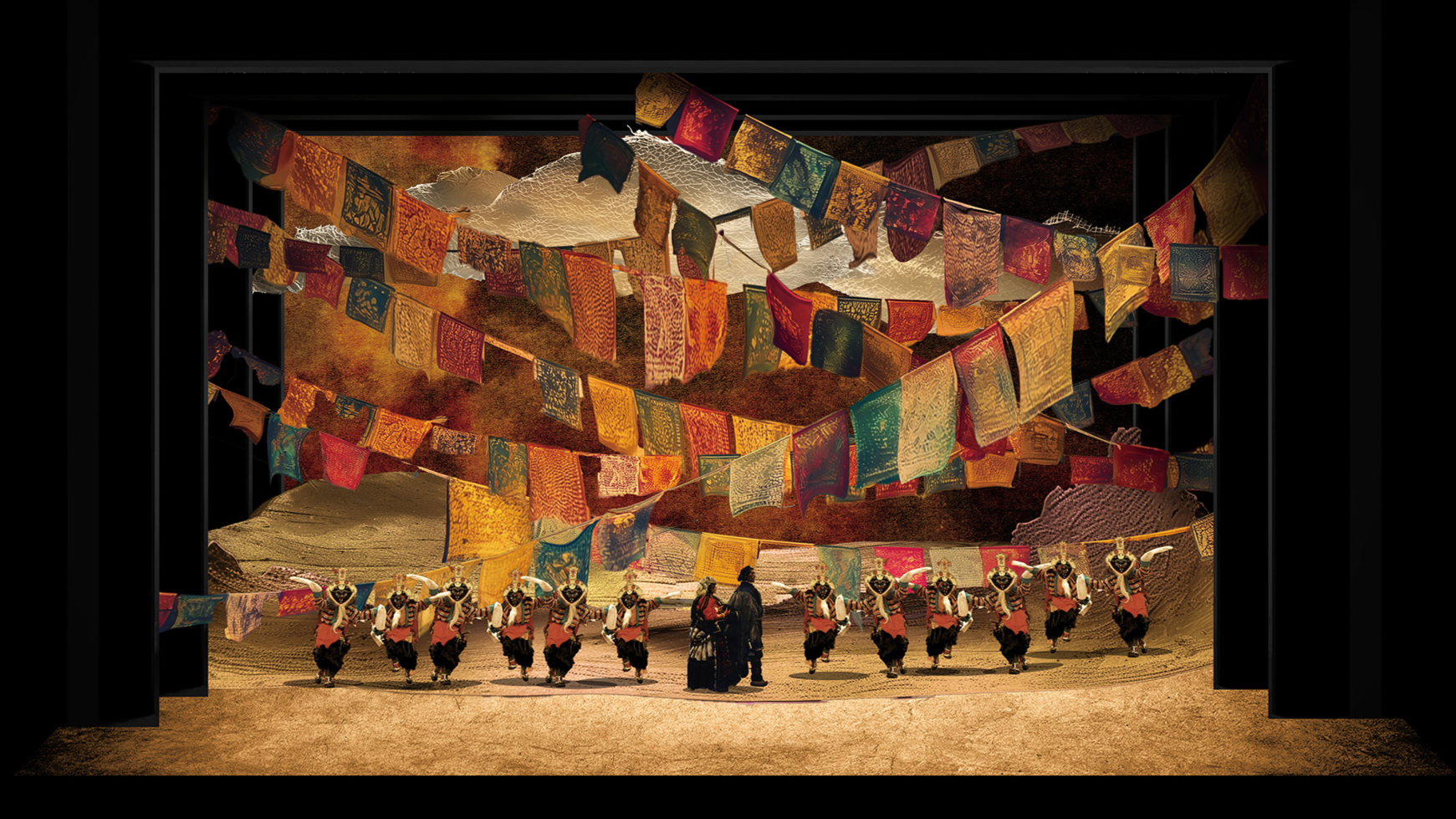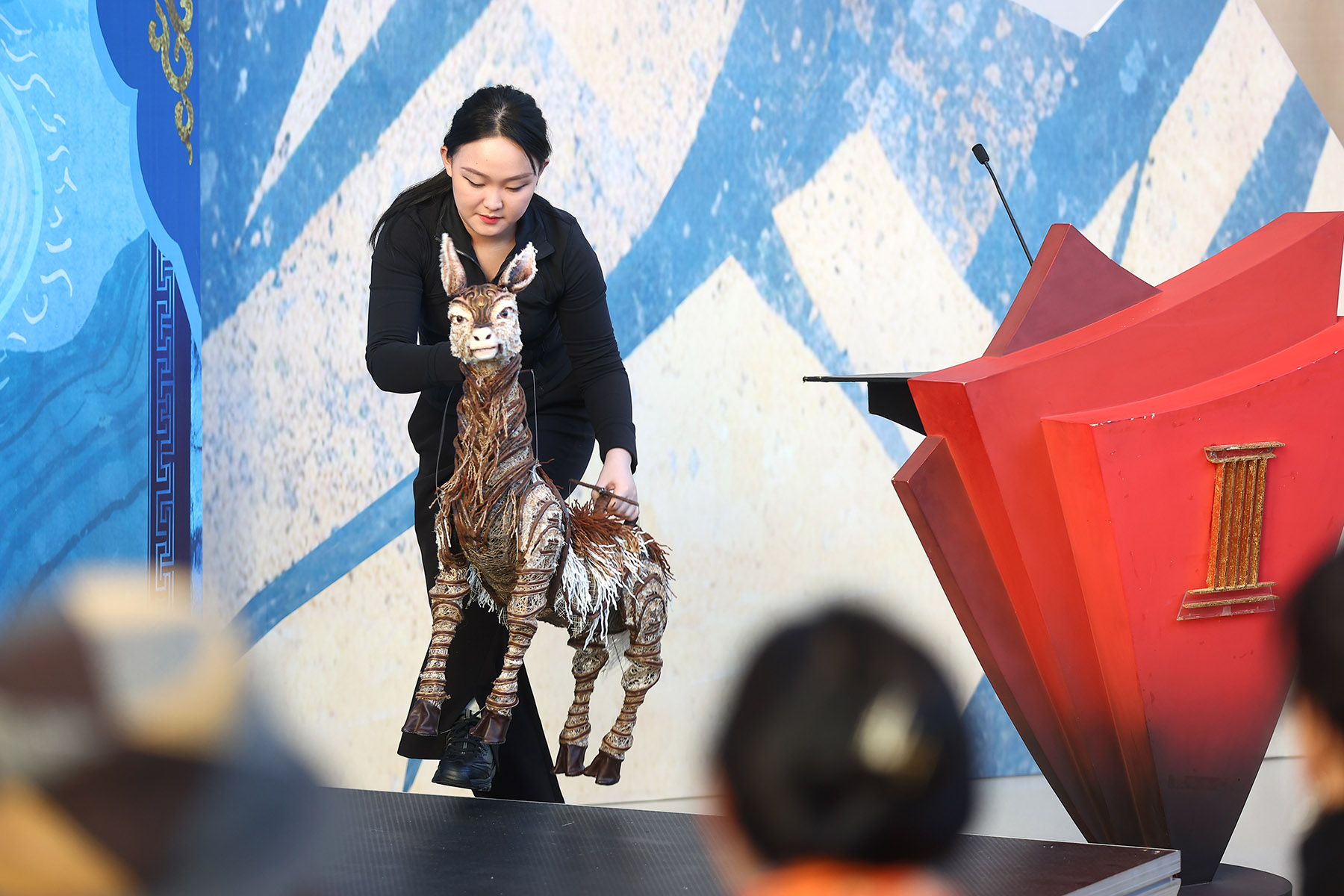Groundbreaking opera examines a journalist's challenges in protecting the Tibetan antelope, calling out to audiences to value the wild, Chen Nan reports.

In a groundbreaking fusion of nature, culture and music, a new Chinese opera is set to transport audiences to the heart of one of China's most pristine remote landscapes.
The Chinese opera, Hoh Xil, will make its debut at the China National Opera House in Beijing on Friday and Saturday, bringing to life the awe-inspiring beauty of Hoh Xil (Kekexili), Northwest China's Qinghai province, a high-altitude, sparsely populated area that is home to unique wildlife, including the endangered Tibetan antelope.
ALSO READ: Patriotic Peking Opera takes to the stage
"Through innovative puppetry, striking visuals, and a haunting score, the opera brings the mountains, the animals, and the deep spirituality of the land to life," says Shi Jingfu, the opera's director, noting that the narrative is centered around the challenges of protecting the Tibetan antelope, whose survival depends on the brave individuals willing to fight for its future.

The story follows a journalist who embarks on a journey to expose the truth behind the poaching of these majestic creatures. Alongside her is a patrol team leader, who will stop at nothing to defend the wildlife of Hoh Xil, even at the cost of his own life.
"At its heart, the opera is a celebration of life and an urgent call to protect what is still wild in the world," says Shi, who has crafted an experience where the animals are as much the protagonists as the human characters in the opera.
"The Tibetan antelopes are not mere background — they are the soul of this story," Shi adds. "Their lives and struggles mirror the struggles of all living beings who fight for survival in a world that often forgets the value of nature."
The opera makes innovative use of puppetry to represent Tibetan antelopes, eagles, and other creatures, to give them realistic movement and life. These puppets are imbued with a sense of humanity, capturing the grace, vulnerability, and strength of the animals they portray. The antelopes, with their elegant, fragile forms, become symbols of nature's delicate balance: vulnerable yet resilient, endangered yet capable of inspiring profound change, according to the director.

Composed by Laozai, the opera's music blends traditional Tibetan melodies with Western operatic techniques to create a unique and evocative soundscape. This blend of styles not only reflects the cultural richness of the region but also amplifies the production's emotional depth.
"I read many stories and watched many documentaries on Hoh Xil. For this opera, I used the music of Tibetan folk songs and local musical instruments, such as the dragonhead zither. I want to take the audience into the raw beauty and harsh realities of life in Hoh Xil through the music," says Laozai, whose real name is Wu Liqun and is known for his scores for the Chinese movie, Kekexili: Mountain Patrol, by director Lu Chuan. The movie, based on a true story, focuses on a volunteer patrol of civilians striving to protect the Tibetan antelope.
The star-studded cast includes tenors Li Shuang and Bian Jiaping and sopranos You Hongfei and Ruan Yuchun. Under the baton of conductor Yang Yang, the music captures the depth and complexity of the story, delivering an unforgettable emotional impact.
The script, written by Li Yukun, weaves Tibetan elements into the narrative, incorporating the Tibetan ethnic group's greetings, prayer rituals, and reverence for sacred mountains. These cultural symbols ground the story in a belief system that promotes ecological balance and the interconnectedness of all living things.

The stage set features a "mother mountain", a living, breathing entity that envelops the entire performance, according to stage designer Chang Wei. With translucent materials that evoke the texture of blood vessels, the mountain's surface pulses with light, mimicking the flow of life within the earth.
"This new opera is an invitation to reflect on humanity's place within the natural world. It is a plea for us to reconsider how we interact with the earth, how we protect its creatures, and how we nurture the balance that sustains all life," says Liu Yunzhi, president of the China National Opera House.
ALSO READ: Protecting nature through photography
The opera house has also announced its performance and creation plans for 2026, including a series of stage productions to commemorate the 90th anniversary of the Red Army's Long March (1934-36).
For world classics, it will pay tribute to composer Giuseppe Verdi on the 125th anniversary of his death with a production of Otello and celebrate Mozart's 270th birthday with a production of The Magic Flute. It will also collaborate with the National Ballet of China to present the symphonic ballet production Ode to Joy and explore opportunities for artistic crossovers.
In terms of international exchanges, Turandot will be performed in the United Arab Emirates, Bulgaria, Greece, and other regions, while La Traviata will embark on a nationwide tour.
Contact the writer at chennan@chinadaily.com.cn


